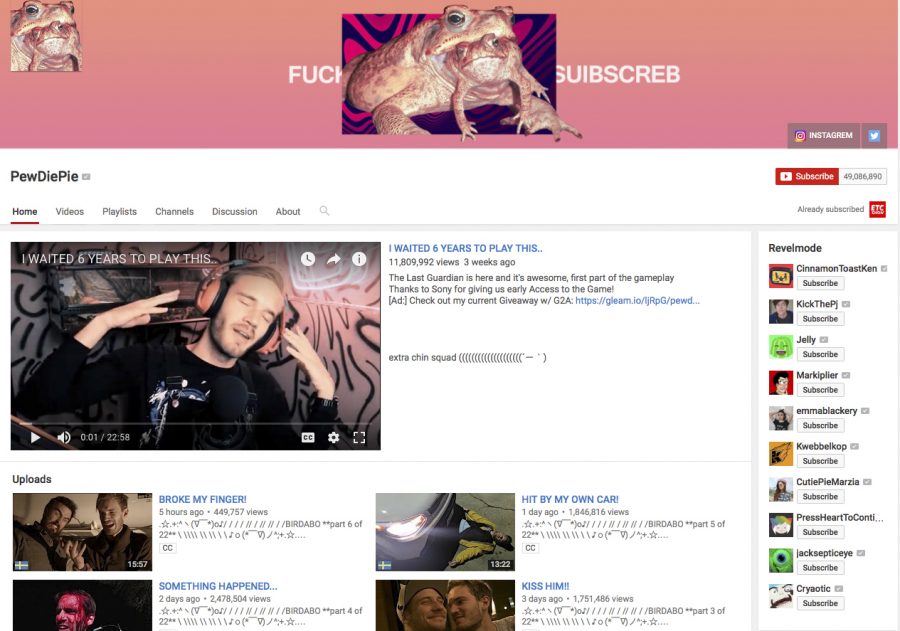Does Internet Redefine Celebrity?
YouTube has slowly been growing as a platform for both expression and fame, with many users reaching celebrity status in popular culture.
November 7, 2016
We are currently undergoing a transition from our established forms of media to an internet-based era. In 2015, the Associated Press reported that those aged 18 to 34 were watching more than 22 hours of television less than they were just four years prior. Internet-based media consumption, however, has more than doubled over that same timespan.
On an hour-to-hour basis, TV still outweighs internet-based media consumption. If these trends continue, however, our established forms of media may one day totally disappear from our culture. This brings up an interesting dynamic — as we redefine how people consume media, should we redefine how entertainers are classified?
Considering this spike in internet-based entertainment, it can be argued that who we define as celebrities is rapidly changing in many different areas of our media. Many performers, comedians, musicians and actors have turned to the internet as their primary means of media distribution, which in turn has created a rift in how one should define celebrity status.
One could look at the success of a multitude of YouTube channels, Vine accounts and Bandcamp musicians that have been given celebrity status due to their overarching popularity among many people despite having little to no experience in establishment media. There are extreme examples of this, such as PewDiePie or Markiplier, who are both worth millions of dollars and known to millions of individual YouTube subscribers.
Then there are smaller, yet equally important examples of this movement away from established celebrities — people referred to as “micro-celebrities,” a term coined by NYUClinical Assistant Professor of Liberal Studies. Theresa Senft in 2001 in regards to women who documented their lives via the internet. Now the term is applied to any person well known enough to have a following on the internet.
If we zoom out from the most successful examples of internet fame, we find a lot of people who are wildly successful in their own following, even though it may not be on a huge scale — people like comedian/musician Bill Wurtz, who has a strong following on Vine and YouTube, and found success in a video titled “history of japan” that colorfully recounts Japan’s history. While this nine-minute video has managed to rack up more than 18 million views in Nov. 2016, Wurtz is not a household name, nor does he even have 1 million subscribers, which is considered to be a watershed of success within the YouTube community.
Despite this, he has a cult fan following and has even won a Shorty Award for his videos. Wurtz may not stack up against people like PewDiePie in terms of overall public acknowledgement, but for every PewDiePie there are several more in the same “micro-celebrity” group as Wurtz, appealing to a comparatively small (Wurtz has about 500 thousand subscribers) but dedicated audience of people.
From this, it can be deduced that the movie star is declining in popularity as a role of social status. Internet media is evolving rapidly, as is how we view its content creators. In 2016, the film industry is on pace to sell the fewest U.S. tickets per person of any year since perhaps before the 1920s and the fewest total tickets in
two decades.
Even those with success in television have begun to have a strong online presence. For example, Josh Peck of “Drake & Josh” fame has an intense following on Vine and Snapchat. It only makes sense that in the age where Netflix means more to us culturally than television, our definitions of celebrities are beginning to change as well.
A version of this article appeared in the Monday, Nov. 7 print edition.
Email Thomas Miritello at [email protected].



























































































































































